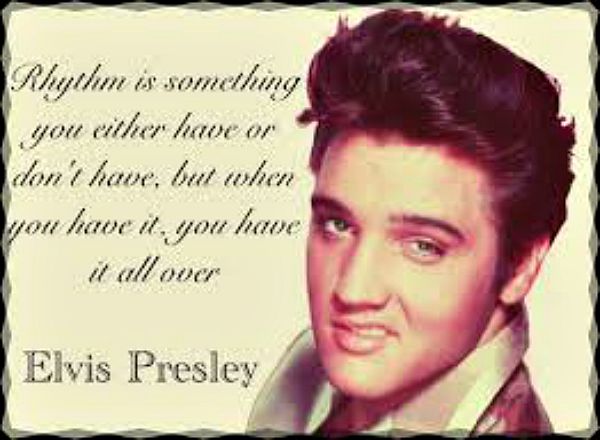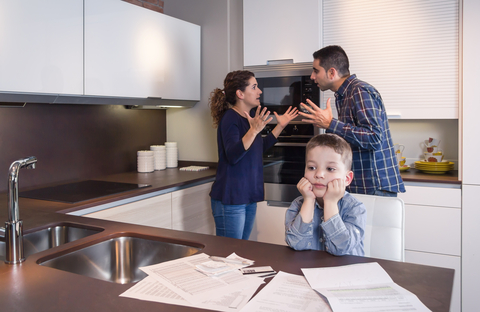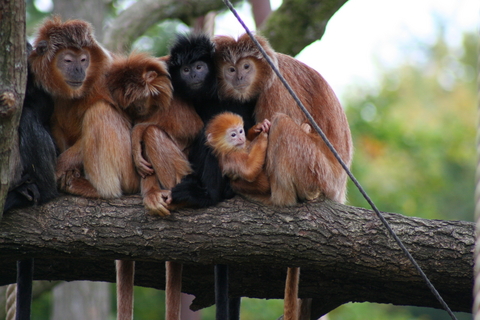 What About ‘Only Children’ and Sibling Position?
What About ‘Only Children’ and Sibling Position?
This entry will make better sense if you’ve read: “The Weird Sisters” by Eleanor Brown, Sibling Position, Part 1 of 2; “The Weird Sisters” by Eleanor Brown, Sibling Position, Part 2 of 2; How Does Your Birth Order Position Affect Your Life Now? Spoiler Alert!; What Does Your Sibling Positipon Have to Do with Love and Friendship?; and The Myth that “More Attention is Always Better” –coming.
 What Kind of Person Does an Only Child Turn Out to Be?
What Kind of Person Does an Only Child Turn Out to Be?
The first thing to keep in mind is that birth order isn’t everything. Also, keep in mind that, when we are anxious, we are likely to jump to simplistic conclusions and over generalizations. In other words, if someone’s behavior is getting to us and they ‘happen’ to be an only child, we’re likely to insist that their behavior is the result of their birth position.
While growing up as an only child does not translate straight into a certain set of behaviors or relationship styles–growing up as an ‘only’ is a ‘different’ experience with a different set of pluses and minuses. The features of family function/dysfunction and parent function/dysfunction land harder on the only. If you can think of a family as a pier and beam house, the more piers there are to balance out the pressure, the less anxiety each pier or person has to manage.
Parents with Spray Cans of Anxiety and Only One Target
The only child is awarded full custody of the anxiety issues of the parents. If the parents have addictions or significant emotional problems, are isolated, are financially challenged, are ambition-obsessed, have sexual deviation issues, have abusive backgrounds, are abusive, are demanding, are particularly young or old–when you’re an the ‘only,’ you get the full weight of those characteristics.
 Divorce and Other Parental Dysfunctions
Divorce and Other Parental Dysfunctions
Divorce hits the ‘only’ harder because his or her life is more drastically changed. Think of the amount of time siblings spend talking (arguing counts) with each other every day. A divorce doesn’t change this quality. The parents are splitting but siblings still have each other to share the ride.
If the parents’ relationship is conflictual, the ‘only’ is more likely asked to take sides. This, of course is true for all children, but in families with more than one child, the parents can choose, and each child is more able to duck and let other siblings take some of the heat. As an ‘only’ with conflictual parents the child often ends up with the role of a spouse making it harder to leave home.
The ‘only’ is more likely to be seen as ‘causing’ the problems of a parent and more likely to be set up as the one to ‘fix’ the parent or keep the parent happy. In general, the more critical the functioning of the child is to the stability of the family—the less freedom that child experiences as he or she moves toward independence and making his or her own decisions.
Negotiation and Conflict Resolution 
While the rumor is that ‘onlies’ are more selfish, the truth doesn’t play out that way. It makes logical sense that approaching others and knowing how to work socially is more difficult for a person without combat and joint planning experience–sometimes. See paragraph one above. What it boils down to is that the position of the only child has its perks and deficiencies.
Those of us with siblings have constant opportunities to learn conflict resolution and cooperation, not that we always come out of those ‘opportunities’ with positive habits. When the family is fairly functional, we learn when it’s best to lead and when it’s best to sit back. We know that a fight doesn’t mean a relationship is over. We know how to form a team.
On the plus side, the ‘only’ often has the capacity to soothe anxiety without help, strong reading skills, and better grammar. The pluses and minuses of birth position, particularly for the ‘only’ change with age. No question it’s a big minus to deal with ailing elderly patients alone.
On Becoming Your Own Person
When it comes to defining a ‘self’‘ or becoming who we are, only children are in a unique position. The ‘only’ is the entire next generation. If there are to be grandchildren, there’s only one person to step up. If the torch of success is to be passed on, the only child must take it or engage in a life-long battle against the task. In a family with several children, one can be the conservative, one the liberal, one the super-mother, one can be the charming butterfly, one can be the devoted career maker, or travel the world. If one out of four children ends up in jail that’s easier to live with than if your only child is incarcerated.
In other words, if the first child falls down on the job–oh well, maybe the next one will succeed.
 The ‘only’ is more strongly affected by the availability of, or lack of, other family–grandparents, aunts, uncles, and cousins. While having a wide group of people involved with a child benefits any child, the ‘only’ is more dramatically affected. The more family members present, the more anxiety can be spread around and the greater the opportunities for the child to develop a special and life-long relationship with a relative who’s a good fit.
The ‘only’ is more strongly affected by the availability of, or lack of, other family–grandparents, aunts, uncles, and cousins. While having a wide group of people involved with a child benefits any child, the ‘only’ is more dramatically affected. The more family members present, the more anxiety can be spread around and the greater the opportunities for the child to develop a special and life-long relationship with a relative who’s a good fit.
**Keep in mind that constant conflict and avoidance both demonstrate the same limited functioning. The child who never leaves home and the child who never comes back are two sides of the same coin. Neither has figured out how to be an adult.
Takeaways: No single feature determines personality and each sibling position comes with pluses and minuses. The good news–only children don’t have to share the inheritance. The bad news–only children don’t have siblings to share a lifetime of anxiety. The good news is that ‘onlies’ can make decisions for the family without arguing. The bad news is that ‘onlies’ have to make decisions for the family without any consultation at all.





